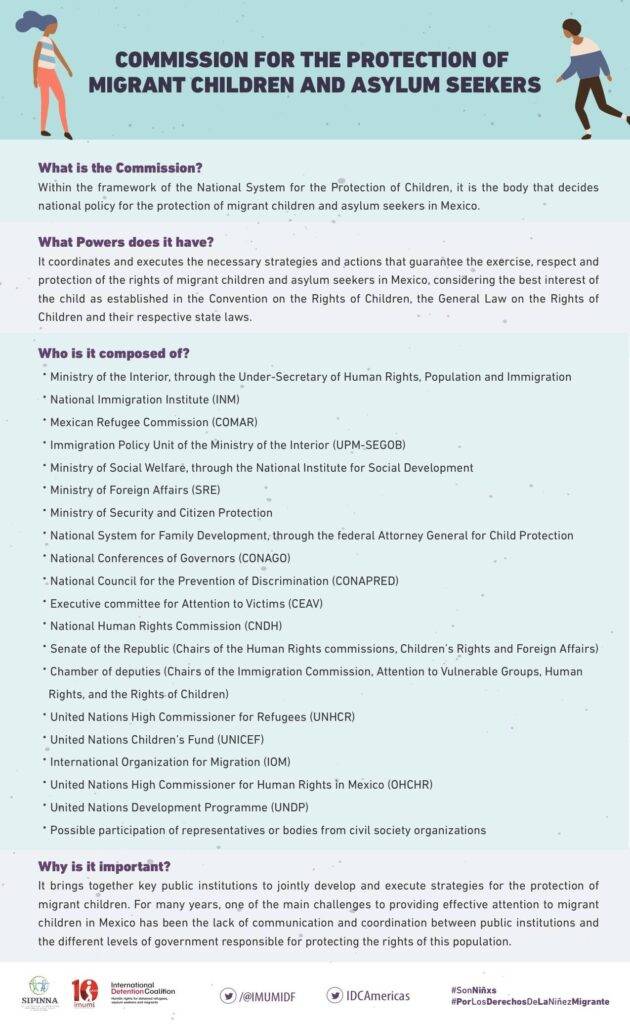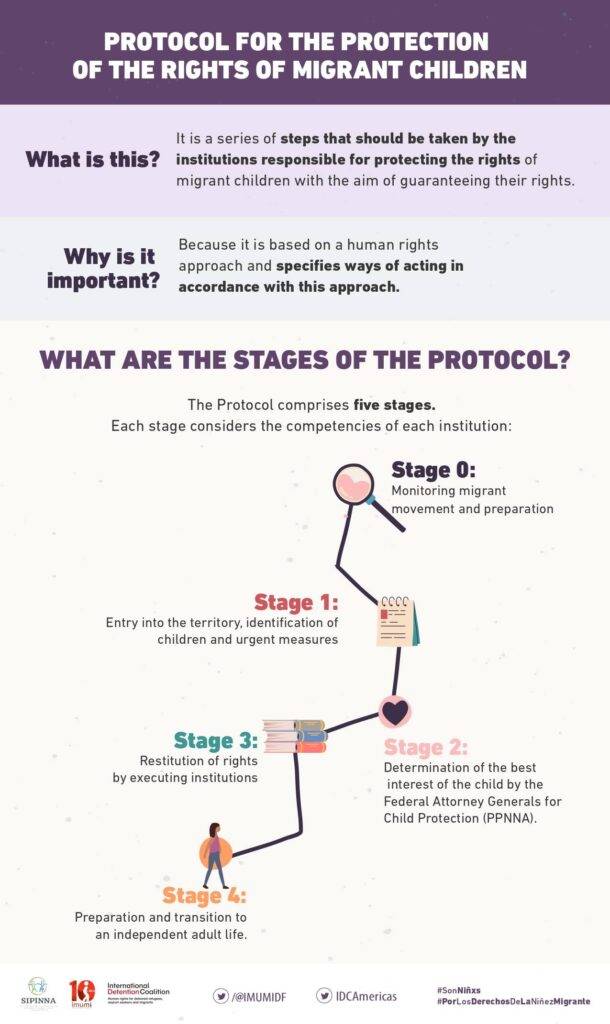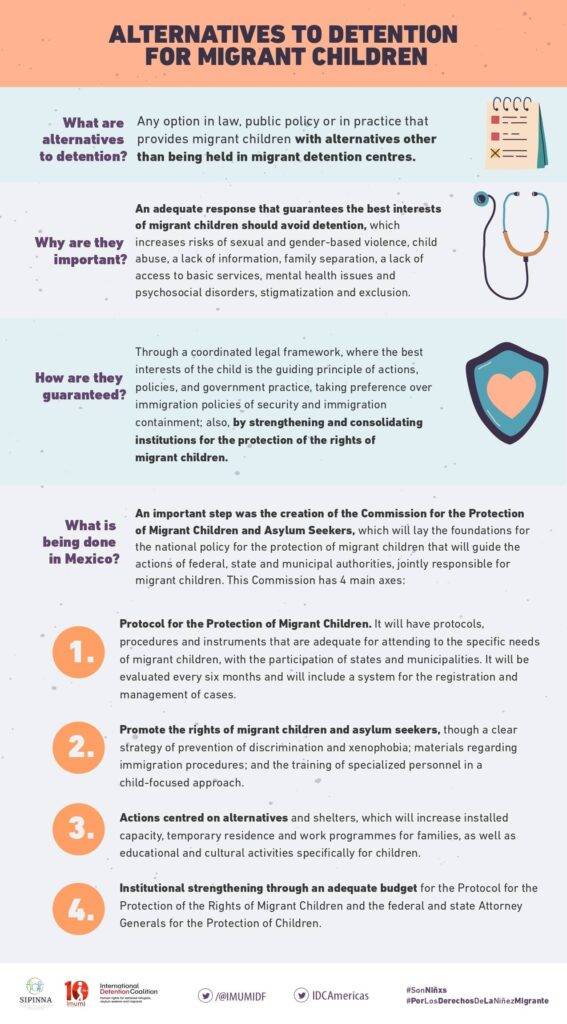
- From January to August 2020, the INM registered the detention of 7,442 migrant children.
- On 29 September, the Mexican Congress approved reforms to the Migration Law and the Law on Refugees, Complementary Protection and Political Asylum in accordance with the provisions of the General Law on the Rights of Children and in order to guarantee that migrant children will not be held in detention.
Mexico City, 12 October 2020.- The International Detention Coalition (IDC) and the Institute for Women in Migration (IMUMI) recognize the legislative progress to guarantee the rights of migrant children by harmonizing the Migration Law (LM) and the Law on Refugees, Complementary Protection and Political Asylum (Law on Refugees) with the General Law on the Rights of Children. Within this context, we are launching an information campaign to highlight the progress and positive practices achieved on a federal and state level regarding alternatives to detention and alternative care models that guarantee the best interests of migrant children.
The legislative reforms of 29 September prohibit the detention of children as a result of their migration status, and transfer responsibility for guaranteeing the wellbeing of this population from the National Migration Institute (INM) to the National System for the Protection of Children, thereby recognizing the rights of children above their migration status.
During 2019, more than 50,000 migrant children were detained, mainly from Honduras and Guatemala. These figures are unprecedented in the 17 years that the Ministry of the Interior has published statistics on immigration detention. Detentions increased by 82% in comparison with 2018. Between January and August 2020, 7,442 detentions of migrant children were registered, 37% of whom were girls and 63% boys, despite the health emergency, and the social distancing and hygiene measures implemented by the Mexican government to combat the pandemic, and in violation of a federal judge’s order to halt the detention of migrant children in detention centers.
The state has the obligation to protect migrant children. The detention of migrant children has repercussions on their psychosocial development in the short, medium, and long term. Non-custodial, community-based alternatives to detention provide migrant children with different options that guarantee their best interests according to their specific needs.
In recent years, Mexico has instituted public policies to protect and guarantee the rights of children from before their entry into the country and during their stay in Mexico. The Commission for the Protection of Migrant Children and Asylum Seekers was created within the framework of the National System for the Protection of Children. This entity is responsible for dictating national policy for the protection of migrant children and asylum seekers in the country, including the National Protocol for the Protection of Migrant Children, which mandates protocols, procedures and instruments to attend to the specific needs of each migrant child.
Today, federal, state and municipal authorities need to commit to the implementation of the National Protocol for the Protection of Migrant Children that guarantees the best interests of the child; the publication of the reforms to the LM and the Law on Refugees in the Official Federal Gazette; as well as to the allocation of sufficient federal and state budget to strengthen the Attorney Generals for Child Protection and the public and private Centers for Social Assistance.
Migration, regardless of the forms of movement or reasons, is rooted in the need for structural change and not acts of deterrence. Regardless of the risks involved or restrictive immigration policies, people will continue to flee from gangs, cartels, gender violence, poverty, and threats against their lives and those of their families. In the current context of the pandemic and given that the recent reforms have not yet come into effect, a continued policy of criminalization of migration increases the threat of detention for children and their risk of contracting coronavirus in detention centers.
Media Contacts:
Diana Martínez Medrano
International Detention Coalition
Cell. 55 7111.4786
Miriam González Sánchez
Instituto para las Mujeres en la Migración, AC
Cell. 55 3733.5819


